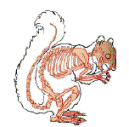
Richard Widmark in Night and the City (dir. Jules Dassin, 1950).

Clash of titans: Stanislaus Zbyszko and Mike Mazurki.

Richard Widmark and Googie Withers.
I'll always watch anything with Richard Widmark in it, but this is truly his finest hour and a half. Cheap hustler Harry Fabian is a piece of human wreckage with far too much energy and drive for his own good or anyone else's. There's nothing evil about him really, but nothing redeemable either, unless it's that he has the power to elicit concern for his well-being from persons with otherwise unclouded judgment. He is, in the memorable line spoken by Hugh Marlowe, "an artist without an art." (Speaking of Marlowe, his character, Adam Dunne, is supposed to be romantically interested in Gene Tierney's character, Mary Bristol, but he is so obviously, obviously gay that I can't imagine any audience today watching them interacting without uniformly dropped jaws.) Fabian races frantically through the film looking for an angle, a break, a mark, a loan, a place to hide, a chance to "be somebody." He gets so excited at his own pitches that he nearly vibrates to pieces, especially when the pitch fails with its intended target--such as Mary or his nemesis, clubowner Phil Nosseross, played by Francis L. Sullivan: Fabian strings Nosseross's wife Helen (Googie Withers) along in order to get her help backing his big wrestling promotion scheme, but Nosseross believes he is pursuing her in earnest, and sabotages his already-shaky venture. Nosseross takes sadistic pleasure in making it clear to Fabian that he's scuttled his enterprise, supplementing the emotional blow with a satisfied crash of the cymbals on a drum kit in the darkened nightclub.
Fabian's other nemesis is gangster-businessman Kristo (Herbert Lom), whose father Gregorius (retired champion Stanislaus Zbyszko, whom Dassin took great pains to seek out for the role, in his only screen appearance) is Fabian's ace in the hole: he takes him as a partner as insurance against Kristo striking out at him for competing with him in the wrestling market. Zbyszko looks like he's carved out of granite. When he moves and speaks, he's like one of those big tree guys in Lord of the Rings, only not as silly. His climactic fight with Mike Mazurki as "The Strangler" is four minutes of elemental theater at its most violent and primal.
For more on the film and its background, see the excerpt from Geoff Mayer's Encyclopedia of Film Noir at Noir of the Week.



No comments:
Post a Comment